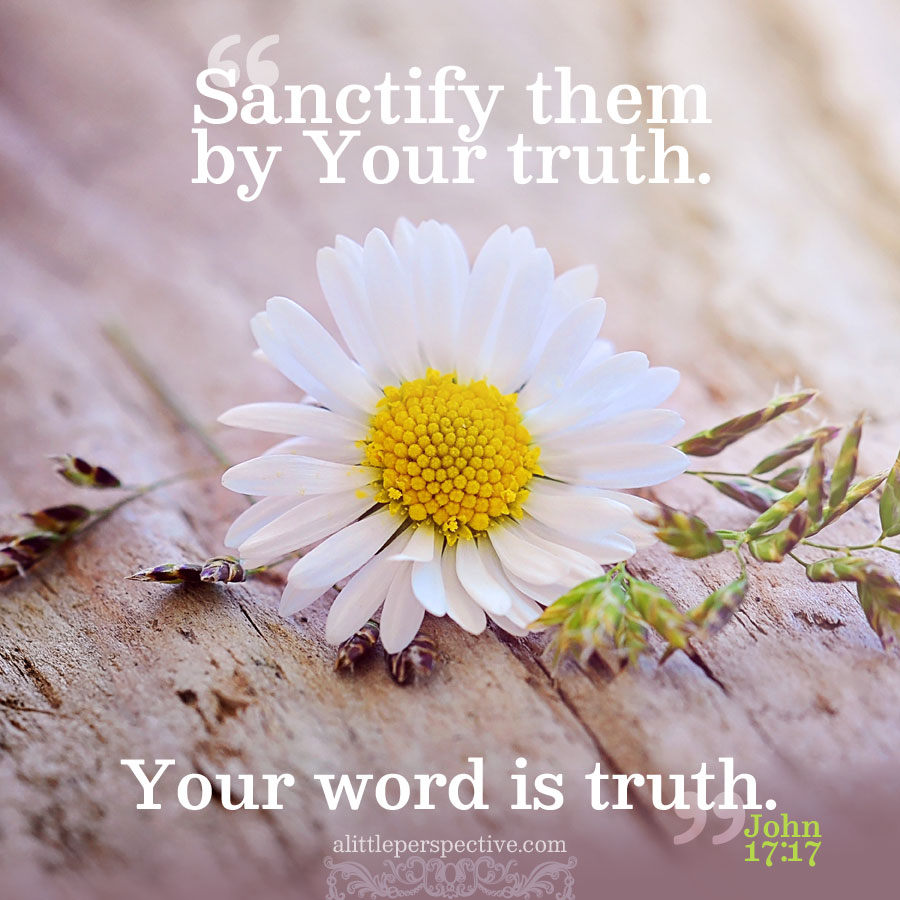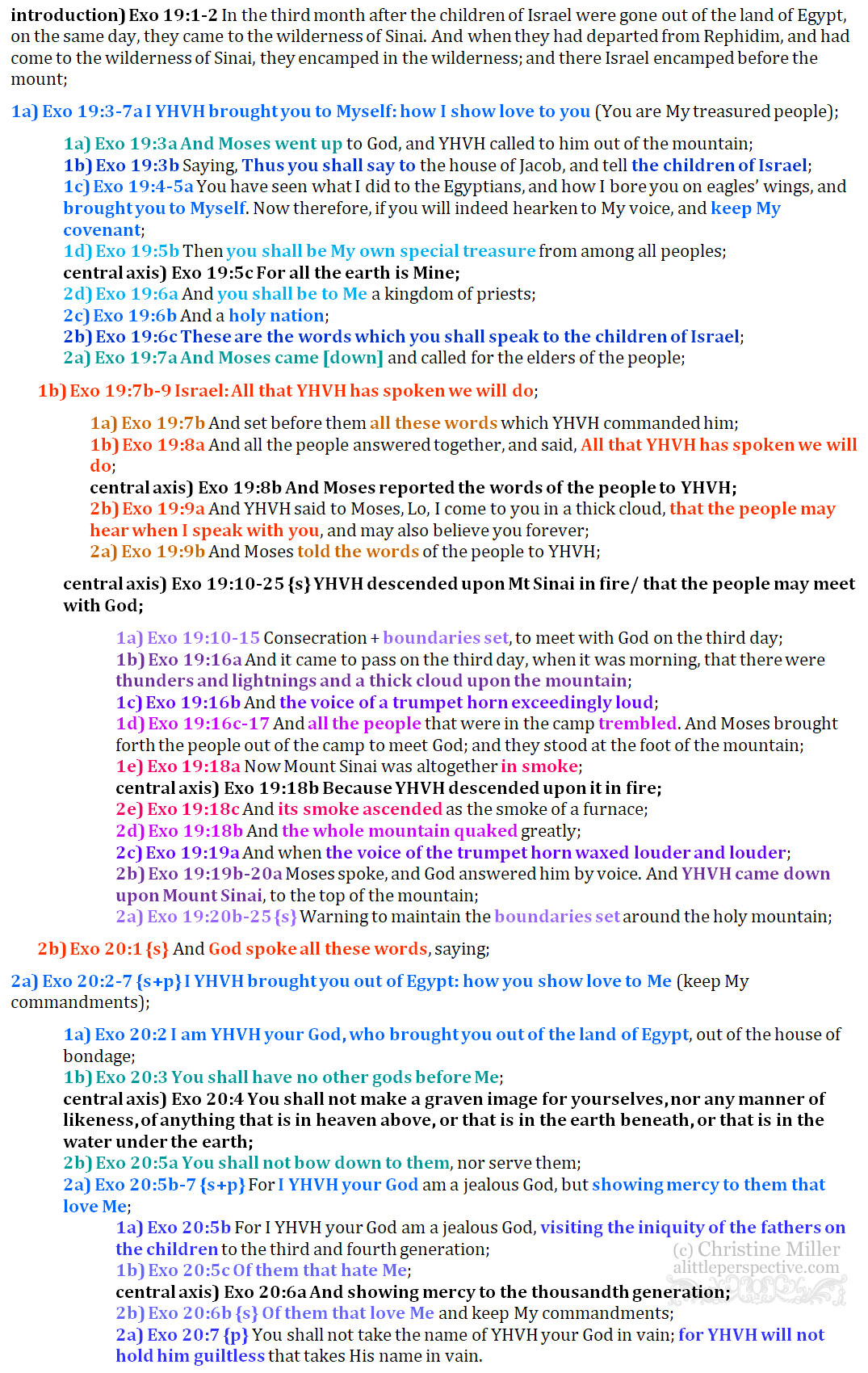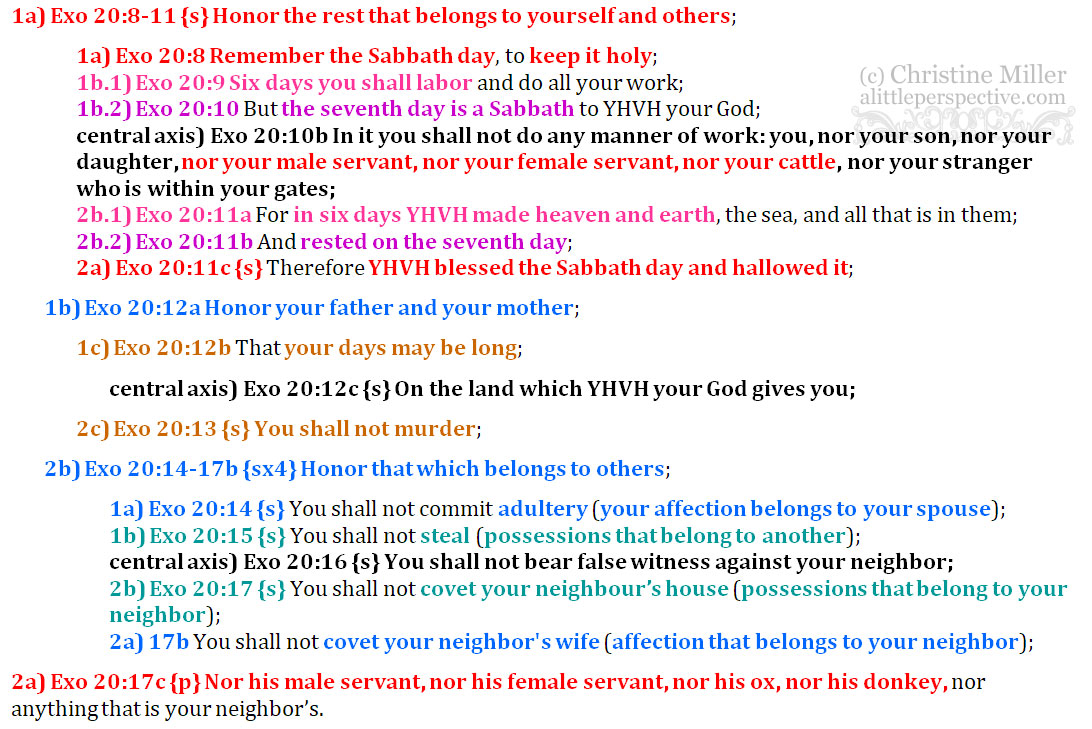A few weeks ago, Answers in Genesis, a ministry I love, promote, financially support, and am blessed by, posted The Dangers of the Hebrew Roots Movement. Please read the previous posts in the series, as I am answering the allegations one by one.
answering answers in genesis, part one
answering answers in genesis, part two
answering answers in genesis, part three
answering answers in genesis, part four
answering answers in genesis, part five
answering answers in genesis, part six
answering answers in genesis, part seven
answering answers in genesis, part eight
answering answers in genesis, part nine
answering answers in genesis, part ten
answering answers in genesis, part eleven
Last time we saw that the Torah, the Law of God, is the Law of Love, establishing the fact from the New Testament. This time we will see that the Torah itself establishes that the Law of God and the Law of Love are equivalent using its own amazing teaching tools (if you are not familiar with Scripture’s unique teaching tools, you can read an introduction to them here).
The Ten Commandments, as we saw, are the summary of the entire Torah. The Ten are posted two places in the Torah, in Exo 20 and in Deu 5.
Exodus 20
The listing of the Ten Commandments begins in Exo 20:2. This verse falls right in the middle of a Torah strong theme, not at the beginning of one (please review the teaching tools of Scripture if you are unfamiliar with Hebrew paragraph divisions, strong themes, or chiastic structures):
Exo 19:1-25 {s} YHVH descended upon Mt Sinai in fire, to enact the marriage covenant with Israel (1st strong theme paragraph)
Exo 20:1 {s} And God spoke all these words, saying (2nd strong theme paragraph)
Exo 20:2-6 {s} Israel shall have no gods before YHVH (3rd strong theme paragraph; 1st & 2nd commandment)
Exo 20:7 {p} Israel shall not take the name of YHVH in vain (concluding strong theme paragraph; 3rd commandment)
A strong theme is a string of paragraphs, all of which are facets of a single theme or topic – the strong theme. This strong theme, however, seems like a mismatched series of paragraphs. What could be the point to ending the theme in the middle of the Ten Commandments, and putting the first three commandments with the previous chapter? The Exo 19:1-20:7 {sx3+p} chiastic structure gives us our answer:
Notice that in this strong theme, the first three commandments, Have no gods before Me; Do not make graven images to worship; and Do not profane My name, are all included in a single smaller chiasm as the 2A pair. The structure is teaching us, therefore, that YHVH first loved us (1A pair) by bringing us to Himself and treasuring us as His people above all the people on the earth, and proposing this marriage covenant with us as He desired us as His wife. We, then, respond in love to Him (2A pair) by keeping His commandments that teach us how to love YHVH, which are commandments 1-3.
John repeated the Torah truth of this strong theme:
We love Him because He first loved us. 1 Joh 4:19
The remaining list of the Ten Commandments is found encompassing the next Torah strong theme:
Exo 20:8-11 {s} Remember the Sabbath day to set it apart (1st strong theme paragraph)
Exo 20:12 {s} Honor your father and mother (2nd …)
Exo 20:13 {s} You shall not murder (3rd …)
Exo 20:14 {s} You shall not commit adultery (4th …)
Exo 20:15 {s} You shall not steal (5th …)
Exo 20:16 {s} You shall not bear false witness (6th …)
Exo 20:17a {s} You shall not covet your neighbor’s house (7th …)
Exo 20:17b {p} You shall not covet anything that is your neighbor’s (concluding strong theme paragraph)
This strong theme also makes a chiastic structure:
The A pair is teaching us to honor the rest, and service, that belongs to ourselves and others.
The B pair is teaching us also to honor that which belongs to others. Honor the authority that belongs to our parents (1B) and honor the affection, possessions, and reputation that belongs to others (1B).
The C pair is where the Golden Rule comes from:
Therefore, whatever you want men to do to you, do also to them, for this is the Law and the Prophets. Mat 7:12
Do you want your own days to be long on the earth (1C)? Then do not cut short another’s days on the earth (2C).
The central axis is teaching us that we and others are on this earth as a gift from God, so as a result we treat ourselves and others with respect and care. When we respect and care for ourselves and others, we respect and care for God, who is the ultimate gift- giver.
The strong theme, then, is how we love ourselves and others.
Deuteronomy 5
The listing of the Ten Commandments begins in Deu 5:6, falling yet again in the middle of a Torah strong theme:
Deu 5:1-5 {s} These statutes and judgments are Israel’s covenant with YHVH
Deu 5:6-10 {s} YHVH alone is God + do not make idols to worship
Deu 5:11 {s} Do not take the name of YHVH in vain
Deu 5:12-15 {s} Observe the Sabbath day to keep it holy
Deu 5:16 {s} Honor your father and mother
Deu 5:17 {s} Do not murder
Deu 5:18 {s} Do not commit adultery
Deu 5:19 {s} Do not steal
Deu 5:20 {s} Do not bear false witness
Deu 5:21a {s} Do not covet your neighbor’s wife
Deu 5:21b {s} Do not covet anything that is your neighbor’s
Deu 5:22-6:3 {p} YHVH’s voice spoke these commandments + hear + pay heed + observe
This strong theme makes a chiastic structure:
Look at the B pair. Just as YHVH is to keep something, Israel is to keep something. YHVH keeps the covenant, that He will be God to Israel. He will love them, guide them, direct them, provide for them, preserve them, give them victory over their enemies, and do all the promises He has promised them. Israel is also to keep something–the commandments. It is how they reciprocate. It is how they will be known as the people of God, and how they will love Him back.
The Ten Commandments are at the heart of the structure. They are the Law — they summarize the Law of God.
The first strong theme of the Exo 20 Ten Commandments reveals God’s love for us and how we respond in love to Him. The second strong theme of the Exo 20 Ten Commandments reveals how we love ourselves and others. The Deu 5 Ten Commandments strong theme reinforces this truth as the second witness establishing the fact (Deu 19:15). The Torah itself reveals that its Ten Commandments summary of itself is the Law of Love.
In fact, the Torah summary of the Ten Commandments is the Covenant ratified in blood (Deu 4:13), and is the Covenant which has been renewed in the blood of Messiah Yeshua (Heb 9:16-26).
Answers in Genesis is merely repeating what we have all been taught, that commandments have nothing to do with the New Covenant. But Scripture teaches us that a characteristic of the New Covenant is that the Law of God will be written on our hearts (Jer 31:33). We will obey it from an internal injunction now, and not merely from an external coercion as when it was only written on two tablets of stone. It is not that the Law of God has been abolished. Jesus taught us it would remain in force as long as the heavens and earth remained (Mat 5:17-19). So if a man tells you the commandments have passed away today, they are countermanding the words of Moses, the Prophets, Jesus, and the Apostles (1 Joh 2:3-6 among many others). But also, if a man tells you that commandments are the purview of the angry God of the Old Testament, while grace is the purview of the loving God of the New Testament, they are again countermanding the two witnesses of Exo 20 and Deu 5, which teaches that His Law is Love. The One God is the same yesterday, today, and forever (Heb 13:8), and His Word, including His Law which teaches men what love means, is truth, and is not obsolete from Genesis to Revelation (Joh 17:17).
Did you know that one of the first heresies recorded in the history of the Church, following the age of the apostles, was the heresy of Marcion? He was the first to say that the God of the Old Testament is vengeful and angry, and different from the God of the New Testament, who is loving and gracious. He threw out the Old Testament as uninspired and unworthy of study. Ultimately he had to throw out a great swath of the New also, because the New is built on the solid foundation of the Old, and the two are in complete harmony (truth never contradicts. It is the most fundamental test of true). So don’t listen to modern men repeat the same old heresies which were condemned by Christ’s Body long ago, but know the Scripture, both the Old and the New, for they do not contradict each other in any particular.
More:
1st commandment, Deu 6:4-11:25: have no other gods before God explained
2nd commandment, Deu 11:26-14:29: do not make idols explained
3rd commandment, Deu 11:26-14:29: do not profane YHVH’s name explained
4th commandment, Deu 15:1-16:17: honor the Sabbath day explained
5th commandment, Deu 16:18-18:22: honor your father and mother explained
6th commandment, Deu 19:1-21:9: do not murder explained
7th commandment, Deu 21:10-23:14: do not commit adultery explained
8th commandment, Deu 23:15-24:7: do not steal explained
9th commandment, Deu 24:8-9: do not bear false witness explained
10th commandment, Deu 24:10-26:15: do not covet explained
To be continued …




















Leave a Reply